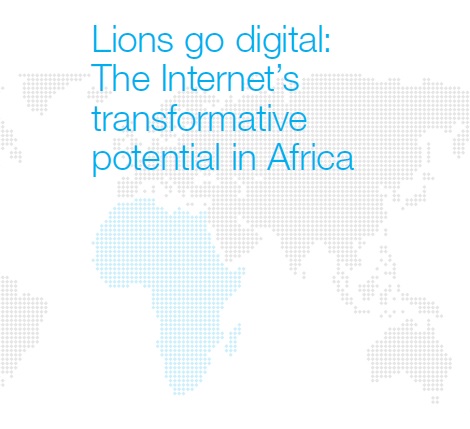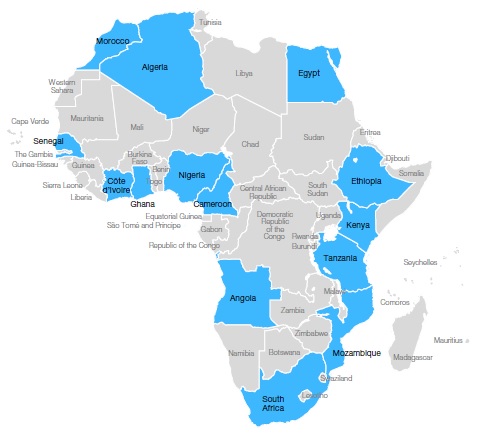600 million potential internet users in Africa by 2025
A recent McKinsey & Co. economic report on Africa looks at the potential of the internet to contribute $300 billion to African GDP by the year 2025. The report, “Lions go digital: The Internet’s transformative potential in Africa,” is full of interesting data points from 14 nations that make up 90% of Africa’s GDP.
The authors are quick to highlight the high level of internet adoption in urban areas as 3G networks become commonplace (and more affordable to access). They also tout the burgeoning innovative spirit that is sweeping these cities. Much of this growth will no doubt be attributed to a generation of young, tech-savvy Africans. Still, the internet’s contribution to GDP currently averages below 2% for Africa; Senegal and Kenya lead with 3% contributions. Smartphone penetration stands between 2-5 percent and will grow to 30 percent overall by 2025. At this rate, 300 million new smartphones will be sold in the next decade. PC and laptop access will also increase albeit less quickly. The one caveat is whether governments act on ICT strategies such as improving e-services. Private investment remains a challenge as well. Still, vast opportunities for growth exist, many relying on new business models.
The Internet in Africa today:
- 16% internet penetration
- 167 million internet users
- 67 million smartphones
- >50% of urban residents are online (ranges from 43-72%)
- 51.6 million Facebook users
- $18 billion internet contribution to GDP
- 10-53% of government departments online
The Internet’s potential in Africa by 2025:
- 50% internet penetration
- 600 million internet users
- 360 million smartphones
- $75 billion in annual e-commerce sales
- $300 billion internet contribution to GDP
Six key sectors that will benefit from the internet:
- Finance: services will reach the unbanked – 60% of Africans could use banking services by 2025 and mobile wallets will be used daily by many
- Education: teacher training will improve and educational content will be accessed on affordable tables or e-books
- Health: remote healthcare will be more common and more affordable – tech benefits to this sector could reach over $100 billion by 2025
- Retail: 10% of retail sales in the largest economies could come from e-commerce ($75 billion annually)
- Agriculture: more farmers will have access to information on crop management, finance, and market prices
- Government: transparency and e-services will contribute to major productivity gains and should also build trust














 Twitter
Twitter Facebook
Facebook Pinterest
Pinterest